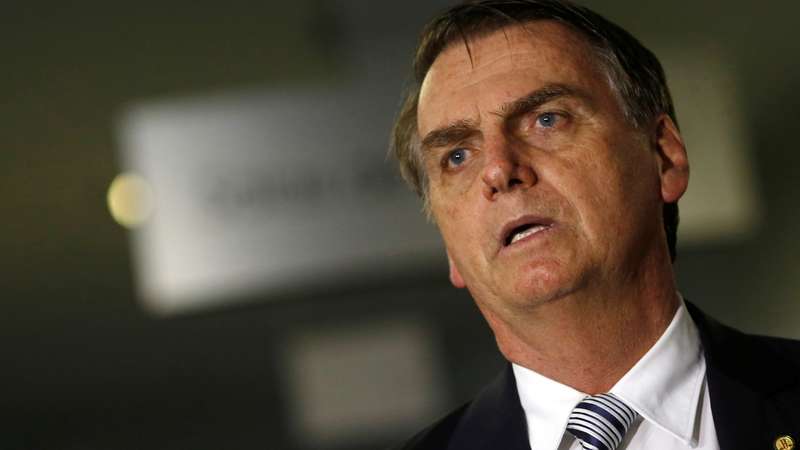Brazilian president-elect Bolsonaro divides the country
November 29, 2018
On Oct. 28, Jair Bolsonaro was elected as President by the people of Brazil by a wide margin.
Until now, Bolsonaro has been a relatively insignificant political figure, having served in Rio de Janeiro as a city councillor. His far-right stance on politics and strong authoritarian policies have earned him the nickname “Trump of the Tropics,”
Although Bolsonaro won the popular vote in his country, many foreign leaders and political analysts have expressed concern over his election. Bolsonaro’s representation of the populist party signals a radical shift in Brazilian politics, as he has praised the country’s military dictatorship, threatened to jail or otherwise destroy his political opponents, and strongly advocated for torture. In a country that has seen steadily rising crime and government corruption, Bolsonaro managed to convince the voting population that his tough and rigid stance on these issues made him a viable alternative to more moderate and traditional candidates.
Opponents of Bolsonaro have been protesting since well before the election and have showed little signs of slowing down since then. Many women especially have protested what they see as blatantly homophobic and misogynistic remarks, using #NotHim on social media to decry his prejudiced and harmful statements.
Yet environmental scientists across the globe are far more worried by his strict proposed environmental policies, with which Bolsonaro plans to turn large swathes of the Amazon rainforest into cattle pastures and soybean farms. Bolsonaro called the government’s protection of the rainforest “an economic obstacle” to Brazil’s future. Over ten times the size of Texas, the Amazon is a massive ecologically diverse region, which contains more than half of the 10 million plant and animal species currently alive, as well as providing 20% of the global oxygen supply. Damage to the Amazon would mean large scale irreversible damage to local as well as global ecosystems. The Amazon also serves as a carbon sink for roughly 2 billion tons of carbon dioxide a year, meaning that deforestation would also lead to the release of massive amounts of CO2, drastically speeding up global warming through large scale emissions of green house gas.
However, his radical political plans and socially regressive remarks have also made him very unpopular with liberal Brazilian voters. While many of his opponents have continued to use non-violent means of protest, one angry voter stabbed Bolsonaro in the stomach during a campaign rally, where he lost roughly 40% of his blood, hospital officials stated. The attack helps to paint a picture of the severe political and social turmoil in Brazil, very comparable to situation in the U.S. right now. After a series of medical procedures, Bolsonaro was implanted with a colostomy bag, which saved his life for the time being, but is now at risk of infection. Though his doctors warn the wound may become infected, Bolsonaro postponed an operation to remove the bag until after his inauguration on Jan. 1.
Going forward, many Brazilians remain hopeful for a brighter future brought about by sweeping change, while many others fear this reform may do more harm than good. Yet all we can do is hold our breath and wait to see what the new year brings for the Brazilian people.


